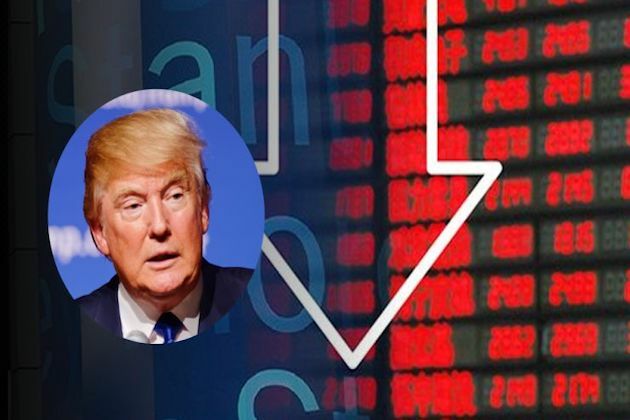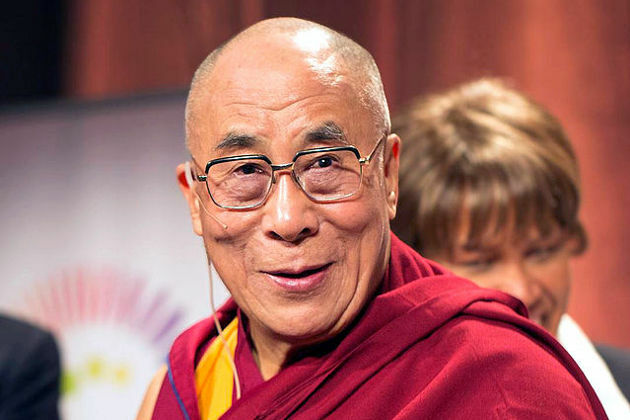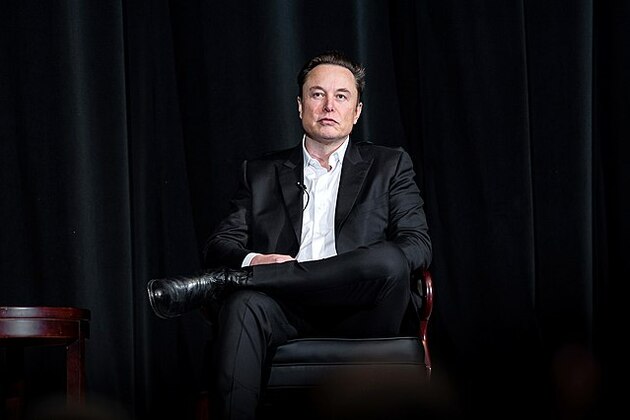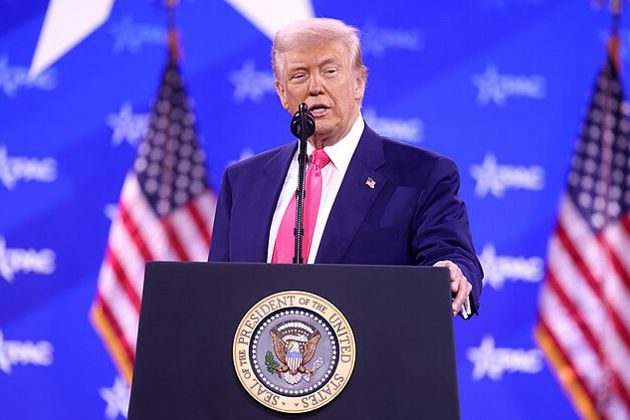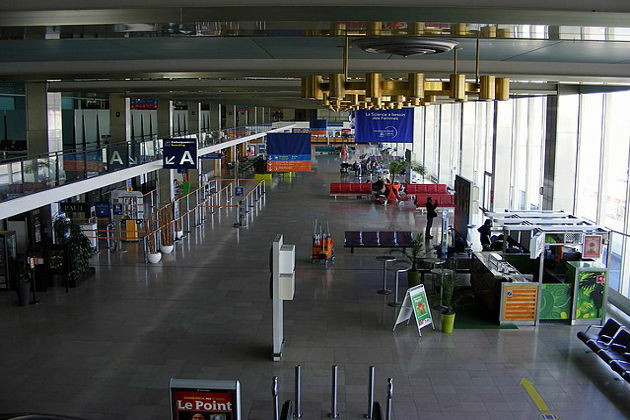China's message is clear: If you hit us, well hit back harder
RT.com
24 Dec 2021, 23:43 GMT+10
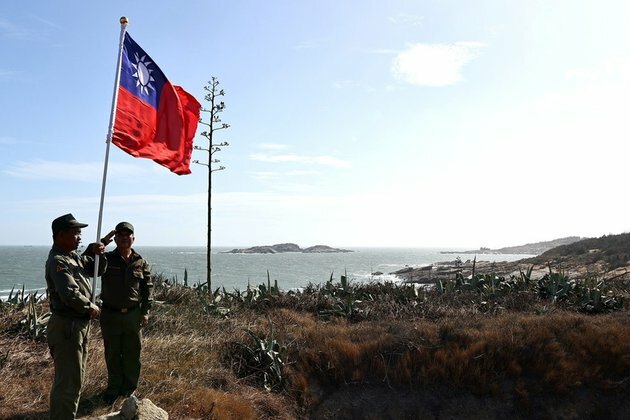
The economic and diplomatic crackdown by Beijing on a small EU country demonstrates how tough it is willing to be against those who defy it over Taiwan.
One of the most notable political dramas of 2021 has been China's showdown with Lithuania. Following the Baltic country's declaration that it would open a "Taiwan representative office" in its country, Beijing denounced it as a violation of its One China policy, specifically over the use of the word Taiwan as opposed to Taipei - which it usually tolerates.
Beijing made it clear that the move was not acceptable, and proceeded to downgrade its ties with the country not once, but twice, expelling its ambassador, a number of diplomats, and reducing relations to a charge d'affaires level.
It hasn't ended there. China has pursued economic retaliation against Lithuania. The country was reportedly struck off China's customs register temporarily, and Beijing has told multinational companies that they are prohibited from exporting to Lithuania.
The move has been described as an attempt to cut the small Baltic state out of its supply chains altogether. It is a clear statement of intent aimed at deterring any countries tempted to make the same move as Vilnius. Meanwhile, Lithuania has secured a $600 million import credit loan from the United States, a demonstration perhaps of who put them up to the move in the first place.
Washington circles have been throwing one of their doublespeak terms around a lot to describe the backlash from China, calling it "economic coercion." It's a misleading and cynical term, especially as it seems to be only applied to China's retaliation against countries, and never about America's brutal and all-encompassing sanctions regimes against multiple countries.
There's also been demands that other EU nations "stand in solidarity" with Lithuania, invoking the rhetoric of 'democracy', 'shared values', but one of Washington's biggest sources of frustration is that this doesn't seem to be happening in any serious manner.
In the past week, Xi Jinping held his first phone call with the new German leader, Olaf Scholz, who expressed his desire to deepen economic ties with China and affirm the comprehensive agreement on investment (CAI).
That was the first piece of bad news for America, particularly as it was widely hoped and demanded that the new chancellor would take a harder line against Beijing following Merkel's long era of engagement, which DC circles despised. Then the German Chamber of Commerce in the Baltics wrote a letter to the Lithuanian government saying that if the China dispute is not resolved, they might be forced to rethink their presence in the country and cut investment and jobs.
Once you cut through the rhetoric, the reality is that Vilnius has dug itself into a hole and the EU won't go out on a limb for it. Talk of unity and solidarity may be the politically correct statements of the day, but that cannot change the practical reality that Lithuania has made a unilateral foreign policy decision against the stance of the entire bloc, at the behest of the US, intentionally pressed against China's red lines, and has incurred retaliation. It is a self-inflicted diplomatic blunder which has provoked a far tougher response from Beijing than Vilnius perhaps anticipated.
Why? China is set on making an example out of Lithuania. In real terms, either political, strategic or economic, the Baltic state's relationship to China is not important. Beijing has no specific goals or aspirations from the country, and in normal times it would never be a focus of attention. Beijing is acting harshly to establish a deterrence for others. From its point of view, its one China Policy is non-negotiable, and sovereignty must always come first.
Beijing's biggest fear is that Lithuania's actions, which come at a time when Taiwan is pushing 'provocation diplomacy' to try to get others to push against China, may set a precedent which encourages others to do the same. This would weaken China's position and allow Taiwan to expand its political space on its own terms.
What makes it worse is that Lithuania's attitude has been intentionally provocative, hostile, and emboldened by the legacy of anti-communism in the Baltics, encouraged by the United States, such as for example, its decision to withdraw from the 17+1 bloc with China earlier this year. As a result, China has gone to lengths it has never gone to before, in order to make an example out of Vilnius and to demonstrate to other countries the consequences of violating their diplomatic commitments, which extend far beyond rhetorical condemnation.
Whilst Lithuania is not the only anti-China nation in the former Soviet bloc of Eastern Europe, Beijing's reaction is intended to make many countries think again about showing support for Taiwan at the highest level. Two important countries here are the Czech Republic and Poland, who are favorable to economic and trade ties with China, but nonetheless wrestling with growing political sentiment at the grassroots level, and Taiwan also making efforts to court them.
China hopes, by attempting to isolate Lithuania within Europe, it can put a lid on how far this will go.
Its new-found ability to pursue extraterritorial sanctions, combined with its enormous economic clout, effectively means many governments have limited means to respond to it. It is in China's strategic interest that the EU does not fully take America's side, but throughout 2021 the message has been persistently clear: "If you hit us, we'll hit back harder." In other words, it will use both carrots and sticks to keep the bloc in line.
As it punishes Lithuania, Beijing continues to woo France and Germany. Hungary under Viktor Orban continues to be the most pro-China state of the bloc, while Beijing has recently rekindled engagement with Greece. These myriad relationships all put curbs on how far 'anti-China' sentiment on the continent can go at a collective level.
While the EU still may lodge formal protests over Lithuania and demand a resolution, Beijing seems comfortable that its decision to take on Vilnius is a calculated risk which won't cause large scale consequences. It believes other EU states are unlikely to put their interests on the line in order to suffer on behalf of Vilnius, which is for all intents and purposes unilaterally undermining the EU's collective foreign policy position by pursuing confrontation with China at Washington's behest.
Is China prepared for a fight over its position on Taiwan? Yes, there should be no doubt about it, it's made that abundantly clear this year. Is the European Union willing and ready to unite completely against its largest trading partner when it is already in a fragile economic situation? No way.
(RT.com)
 Share
Share
 Tweet
Tweet
 Share
Share
 Flip
Flip
 Email
Email
Watch latest videos
Subscribe and Follow
Get a daily dose of Taiwan Sun news through our daily email, its complimentary and keeps you fully up to date with world and business news as well.
News RELEASES
Publish news of your business, community or sports group, personnel appointments, major event and more by submitting a news release to Taiwan Sun.
More InformationBusiness
SectionFedEx, UPS step up as Canada Post loses market share in strikes
OTTAWA, Canada: With Canada Post struggling to maintain operations amid labour unrest, rivals like FedEx and UPS are stepping in to...
U.S. stocks steady Tuesday despite tariffs turmoil
NEW YORK, New York - U.S. and global markets showed a mixed performance in Tuesday's trading session, with some indices edging higher...
Beijing blamed for covert disinformation on French fighter jet Rafale
PARIS, France: French military and intelligence officials have accused China of orchestrating a covert campaign to damage the reputation...
Birkenstock steps up legal battle over fakes in India
NEW DELHI, India: Birkenstock is stepping up its efforts to protect its iconic sandals in India, as local legal representatives conducted...
Beijing hits back at EU with medical device import curbs
HONG KONG: China has fired back at the European Union in an escalating trade dispute by imposing new restrictions on medical device...
Wall Street reels after Trump invokes new tariffs
NEW YORK, New York - Monday's trading session saw mixed performances across U.S. and global markets, with several major indices posting...
International
SectionThousands gather in Himalayas as Dalai Lama celebrates 90th birthday
DHARAMSHALA, India: The Dalai Lama turned 90 on July 6, celebrated by thousands of followers in the Himalayan town of Dharamshala,...
Fans perform WWII-era Fascist salute at Marko Perković’s mega concert
ZAGREB, Croatia: A massive concert by popular Croatian singer Marko Perković, known by his stage name Thompson, has drawn widespread...
U.S. Treasury Secretary says Musk should steer clear of politics
WASHINGTON, D.C.: Elon Musk's entry into the political arena is drawing pushback from top U.S. officials and investors, as his decision...
TikTok building U.S.-only app amid pressure to finalise sale
CULVER CITY, California: TikTok is preparing to roll out a separate version of its app for U.S. users, as efforts to secure a sale...
Trump defends use of 'Shylock,' citing ignorance of slur
WASHINGTON, D.C.: President Donald Trump claimed he was unaware that the term shylock is regarded as antisemitic when he used it in...
Summer travel in chaos as French air traffic controllers walk off job
PARIS, France: A strike by French air traffic controllers demanding improved working conditions caused significant disruptions during...






